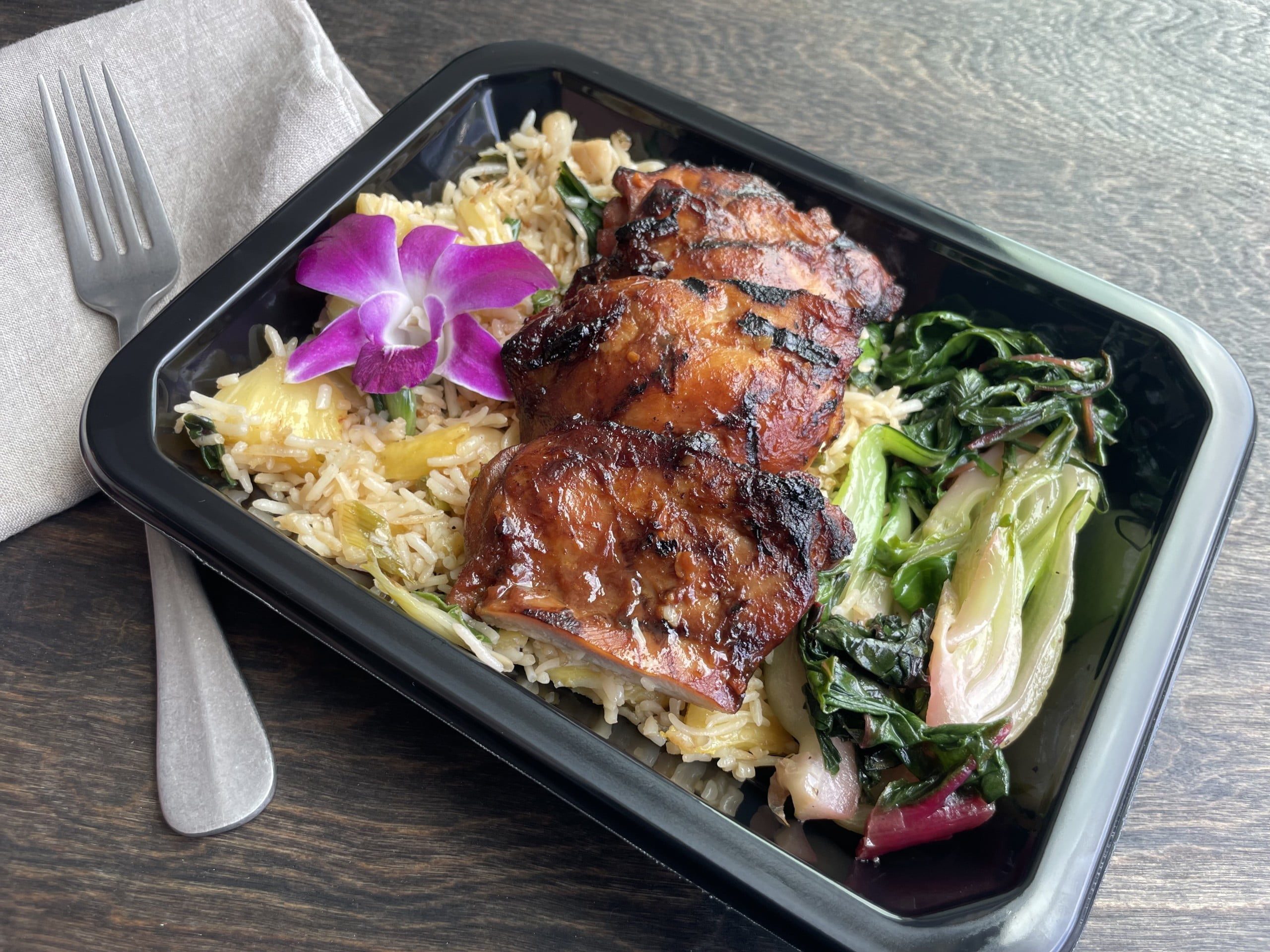
Take your tastebuds on a Hawaiian Vacation
Summer just got here, and this heat already has us dreaming of a sweet island getaway. That’s why this month we turned to the beautiful
Cart
No products in the cart.
Our Website is under maintenance if you run into any issues, please call us (832)-942-4012
Living with food allergies requires a daily commitment to eating safely. Finding safe and healthy foods that fit your unique diet restrictions can be both pricey and time consuming. But what if there was an efficient and safe way to streamline even just one meal a day? Some gourmet meal services may be able to do just that and add to your overall quality of life in the process.
In addition to avoidance of your known food allergens, a few of the most important keys to eating safely when you have food allergies are becoming educated on the condition, evaluating important meal time considerations, and helping others keep you safe.
 Food allergies are a serious medical condition in which exposure to certain foods causes a harmful immune response known as an allergic reaction. Reactions can range from being relatively mild in nature with symptoms of itchiness and hives to being life-threatening with the onset of anaphylaxis.
Food allergies are a serious medical condition in which exposure to certain foods causes a harmful immune response known as an allergic reaction. Reactions can range from being relatively mild in nature with symptoms of itchiness and hives to being life-threatening with the onset of anaphylaxis.
The top eight food allergens responsible for most reactions are considered to be egg, fish, milk, peanuts, shellfish, soy, tree nuts, and wheat. While these foods account for the majority of allergic reactions, they are not the only foods related to food allergies.
While it is possible for some people to outgrow their food allergies, some allergens such as peanuts often can have a lifelong impact. Currently, there is no cure for food allergies. The condition is largely managed by practicing avoidance of known allergy triggers as well as learning to recognize and treat reactions quickly.
The first step to outsourcing your food with confidence is verifying that the provider is well educated on food allergies. This means that the provider should know what food allergies are and the seriousness of them, be able to recognize the alternate names by which some common allergens are listed as (i.e. albumin for egg), and understand how to correctly read ingredient and warning labels for all ingredients.
A Food provider should also be able to accurately read a food label. This includes understanding that thanks to the Food Allergen Labeling Consumer Protection Act of 2004, foods regulated by the United States Federal Drug Administration are required to list major food allergens either by labeling an ingredient and its allergen (i.e. flour (wheat)) or by including a “contains” or “may contain” statement following the ingredients (i.e. Contains peanuts and milk).
Cross contamination is usually the area of biggest concern after addressing labeling issues. Cross contamination or cross-contact can occur when a food allergen comes in contact with food or an item that is intended to be free of that allergen. Some of the more common offenders for cross contamination can be commonly shared items:
Another key factor in avoidance of cross contamination is to ensure the proper sanitizing of all utensils, dishes, glasses, and surfaces. If not thoroughly cleaned between every use, each of these items can transfer residue from an allergen to a meal not intended to contain that specific food allergen.
If you have food allergies, a responsible and trustworthy gourmet meal service may be able to provide you safe allergy-free meals. To decide if a gourmet meal service is for you, do your homework upfront so that you can eat with confidence.
Have a conversation with your potential meal service about reading food labels and allergy statements. In many cases, these meal providers are in the business of providing customers with fresh, whole ingredients and shy away from the use of processed foods.
Question the gourmet meal service on how they would prepare an allergy-safe dish. Start with asking which of your allergens are used in-house and how they are separated from other ingredients. A reputable service will cook each ingredient from scratch with its own utensil in its own container and will not assemble the remaining ingredients together in one bowl until the very end. This should allow a client to easily request that an allergen be left out of the final dish.
Verify the service’s process for avoiding cross-contamination when it comes to utensils and surfaces. For example, ask if they use dedicated cookware and utensils for particular allergens. During preparation cross-contamination practices are just as important as those that follow the meal. Ask the provider how they sanitize commonly used kitchen items and how often they do so.
Evaluate their packaging process. Most responsible gourmet meal services will label each meal with an ingredient label and possibly a special allergy statement. Many companies vacuum seal the finished meals to increase their shelf life, so verify the packaging procedure and ask what steps are taken to keep your meal free of potential allergens.
One bonus for selecting a smaller gourmet meal service in comparison to a larger big box meal provider is the attention to detail all the way from the top dog to the worker bees. When you call to place an order for your meal, ask who will be preparing your meal and make sure they understand the above concerns. In many cases, the person you speak with may be personally handling your meal rather than handing it down the chain to a less-experienced staffer.
Food allergies don’t have to define you. With proper planning and research, it is possible to enjoy a nutritious and safe meal prepared outside of the home and save you a little more time in the process.

Summer just got here, and this heat already has us dreaming of a sweet island getaway. That’s why this month we turned to the beautiful

Check out how EatFlavorly utilizes Mexican meats and so many more in our scratch-made meals over at Our Menu! With Cinco de Mayo

National Earth day is approaching on Thursday April 22nd. Today, not only is Earth Day a day meant to increase awareness of environmental problems, but
The convenience of home meal delivery is undeniable. Getting food delivered to your door that does not require cooking or cleaning is a huge time-saver.